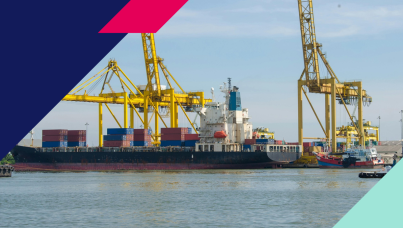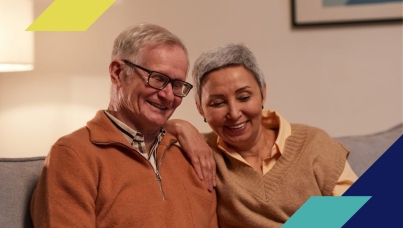While Canadians Generally Confident They Could Recognize the Signs of a Medical Emergency, They're Less Confident with Their Skills to Help
Nine in ten Canadians (90%) are `confident' (47% very/44% somewhat) that they could recognize when someone is choking, while three quarters (73%) say they're `confident' (22% very/51% somewhat) that they could recognize when someone is experiencing a heart attack or cardiac emergency. A majority are also `confident' that they could recognize when someone is experiencing a heat emergency, such as heat stroke (65% total - 15% very/50% somewhat) or anaphylaxis shock, a severe allergic reaction (62% total - 20% very/43% somewhat). Just half (49%) are `confident' (12% very/38% somewhat) that they could recognize when someone has experienced a concussion.
However, when Canadians were asked how confident they are in their skills to be able to help someone experiencing these conditions, they were much less sure of themselves. While two thirds (67%) are `confident' (23% very/45% somewhat) that they could help someone who is choking, they are significantly less confident that they could help someone who is experiencing a heat emergency (55 total - 15% very/40% somewhat), a heart attack or cardiac emergency (47% total - 15% very/33% somewhat), anaphylaxis shock (40% total - 12% very/28% somewhat) or a concussion (38% total - 11% very/28% somewhat). The chart below summarizes these findings.
Interestingly, women (69%) are significantly more likely than men (55%) to say they could recognize when someone is experiencing anaphylaxis shock, and they're also more likely to say they could help someone experiencing anaphylaxis shock (43% women vs. 36% men). Men, however, are more confident in their ability to help someone who is experiencing a heart attack (51% men vs. 44% women) or who is choking (70% men vs. 65% women).
In every case, Quebecers were less likely than the average Canadian to be able to recognize when someone is experiencing these medical emergencies, and also less confident in their ability to help.
Two in three (67%) Canadians have taken a first aid course, although just 18% have done so within the last three years and 49% took the course more than three years ago. One in three (33%) Canadians have never taken a first aid course, although 25% would like to and just 7% have no interest in it. The data reveals that men (70%) are slightly more likely than women (65%) to report having taken a course. Regionally, those in Alberta (80%) are most likely to have taken a first aid cause, followed by those living in Atlantic Canada (72%), Ontario (69%), British Columbia (66%), Saskatchewan and Manitoba (64%) and Quebec (60%).
Canadians who have taken a first aid course are considerably more confident in their skills to be able to help someone experiencing a medical emergency. They're more `confident' when it comes to helping someone who is choking (78% who have taken a first aid course vs. 45% who have not taken a course), having a heat emergency (64% vs. 37%), having a heart attack or cardiac emergency (58% vs. 25%), anaphylaxis shock (48% vs. 22%), or a concussion (47% vs. 20%).
Four in ten (38%) Canadians say that they've been in a situation where they have had to perform first aid in an emergency situation. Interestingly, British Columbians (47%) are most likely to have been in this situation, followed by those living in Alberta (39%), Saskatchewan and Manitoba (38%), Ontario (38%), Quebec (34%) and Atlantic Canada (34%).
Nearly a quarter (22%) have had to perform first aid on a family member, while 15% have performed first aid on a stranger. One in ten (13%) have assisted a friend in this way, and a similar proportion (12%) have performed first aid on a work colleague. Six in ten (62%) Canadians have never performed first aid.
Eight in ten (78%) Canadians say that knowing how to perform first aid is `very important', and a further two in ten (20%) say it is somewhat important. Just 1% thinks knowing how to perform first aid is `not very important'.
Among those that have taken a course, most (53%) say it was arranged for or given by their employer. Others have taken learning first aid into their own hands: 11% say it was required by work but they needed to find a course themselves, 5% responded to an advertisement about a course for personal interest, 5% say the course was offered by a fellow employee in their workplace, and 5% searched online for a course independently for personal interest. Two in ten (22%) came to take a first aid course through some other means.
These are some of the findings of an Ipsos Reid poll conducted between July 3 and 8, 2012, on behalf of the Red Cross. For this survey a sample of 2,015 Canadians from Ipsos' Canadian online panel was interviewed online. Weighting was then employed to balance demographics to ensure that the sample's composition reflects that of the adult population according to Census data and to provide results intended to approximate the sample universe. A survey with an unweighted probability sample of this size and a 100% response rate would have an estimated margin of error of +/- 2.2 percentage points, 19 times out of 20, of what the results would have been had the entire population of adults in Canada been polled. All sample surveys and polls may be subject to other sources of error, including, but not limited to coverage error, and measurement error.
For more information on this news release, please contact:
Sean Simpson
Associate Vice President
Ipsos Reid Public Affairs
416.572.4474
[email protected]
About Ipsos Reid
Ipsos Reid is Canada's market intelligence leader, the country's leading provider of public opinion research, and research partner for loyalty and forecasting and modelling insights. With operations in eight cities, Ipsos Reid employs more than 600 research professionals and support staff in Canada. The company has the biggest network of telephone call centres in the country, as well as the largest pre-recruited household and online panels. Ipsos Reid's marketing research and public affairs practices offer the premier suite of research vehicles in Canada, all of which provide clients with actionable and relevant information. Staffed with seasoned research consultants with extensive industry-specific backgrounds, Ipsos Reid offers syndicated information or custom solutions across key sectors of the Canadian economy, including consumer packaged goods, financial services, automotive, retail, and technology & telecommunications. Ipsos Reid is an Ipsos company, a leading global survey-based market research group.
To learn more, please visit www.ipsos.ca.
About Ipsos
Ipsos is an independent market research company controlled and managed by research professionals. Founded in France in 1975, Ipsos has grown into a worldwide research group with a strong presence in all key markets. In October 2011 Ipsos completed the acquisition of Synovate. The combination forms the world's third largest market research company.
With offices in 84 countries, Ipsos delivers insightful expertise across six research specializations: advertising, customer loyalty, marketing, media, public affairs research, and survey management.
Ipsos researchers assess market potential and interpret market trends. They develop and build brands. They help clients build long-term relationships with their customers. They test advertising and study audience responses to various media and they measure public opinion around the globe.
Ipsos has been listed on the Paris Stock Exchange since 1999 and generated global revenues of e1,363 billion (1.897 billion USD) in 2011.
Visit www.ipsos-na.com to learn more about Ipsos' offerings and capabilities.




